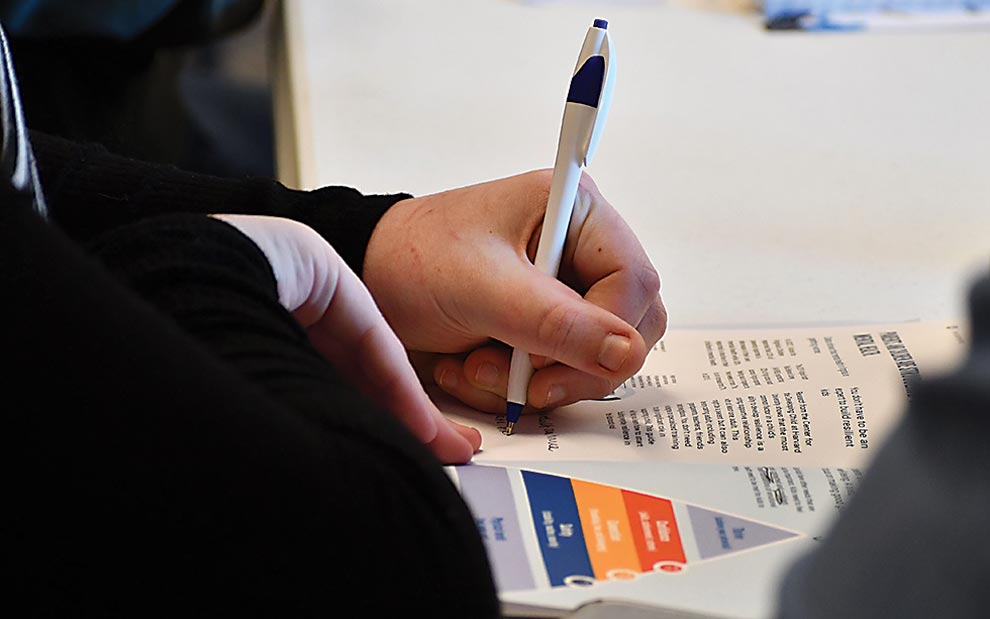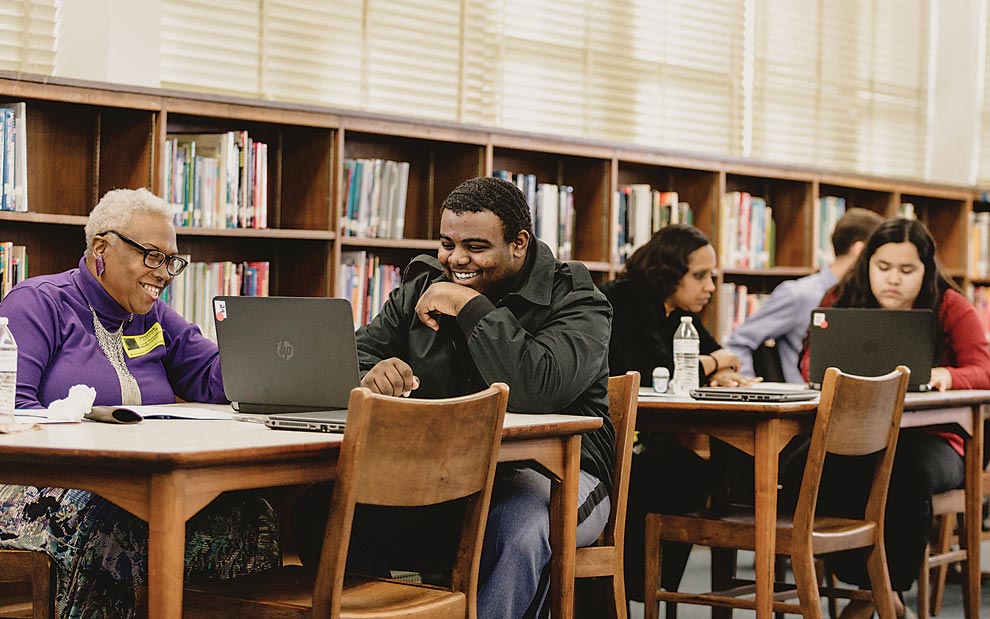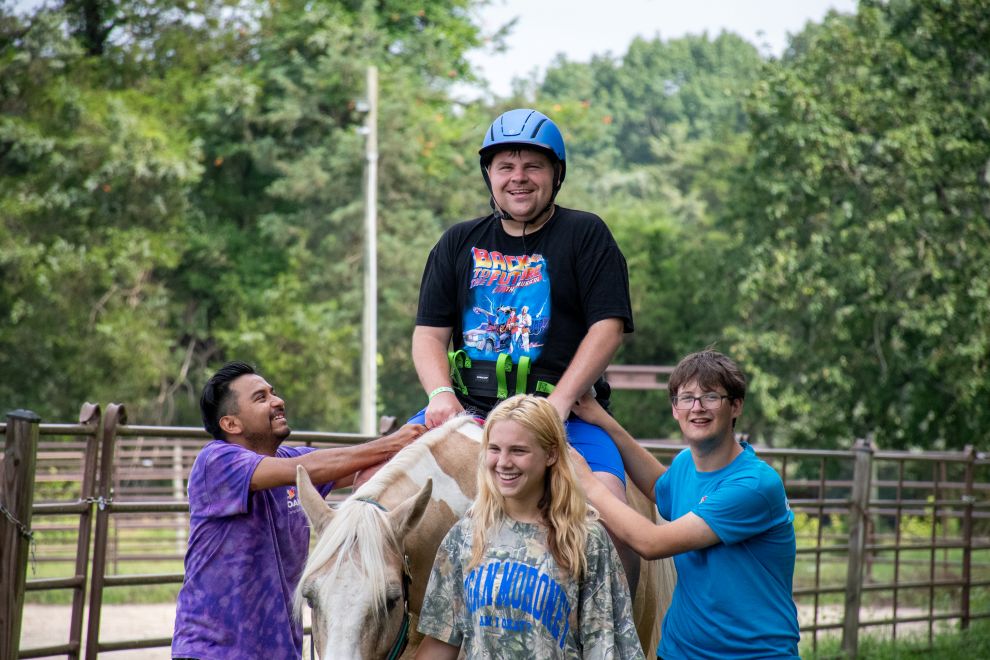If you’re worried about your child’s mental health, you’re not alone.
A 2022 report by the Pew Research Center found that mental health was the greatest worry among parents, trumping fears of kidnapping, dangers of drugs and alcohol, teen pregnancy, and getting into trouble with the police.
As a mother of teenaged children, the mental health crisis among youth today is a pressing concern of mine – for my kids and for those in our community.
Even before the pandemic, rates of anxiety and depression were high among youth. Many young people in our community were struggling with mental health, grief and loss, and the devastating impact of community violence.

EveryDay Strong is designed to address systemic challenges.
Research tells us that caring adults make a profound difference in children’s emotional well-being. Not only parents, but the adults in their lives every day – grandparents, teachers, coaches, bus drivers, barbers and stylists, neighbors, faith community members, and others – reinforce a feeling of belonging and provide a sense of confidence that young people are in safe and nurturing surroundings. We know from Maslow’s hierarchy of needs, for example, that our need for love and belonging is essential to a sense of connection.
However, a 2021 survey found that more than one-third of Virginia youth did not have an adult to talk with about their problems, revealing a disconnection that desperately needs to be addressed.
With an understanding of these needs and help from partners, EveryDay Strong from the United Way, is designed to empower adults to better support the emotional needs of young people, ages eight to eighteen. It’s a simple framework to help caring adults provide support in three key areas: safety, confidence, and connection.
Originating as a community program from United Way of Utah County, where it has been proven effective, EveryDay Strong provides parents and other caring adults with the tools they need to help the children in their lives become more resilient with educational materials, trainings, and organizational partnerships.
The framework includes real-life examples of children who are demonstrating apathy, depression, aggressive or destructive behavior, or estrangement from their families.
Here are a few examples from the EveryDay Strong Resilience Handbook, which offers a variety of tips and activities for adults who want to enhance their capacity to support children and teens.
Safety: Safe to Feel
What to do: When you see a child who is overwhelmed with anger, sadness, or anxiety, validate their emotions instead of trying to eliminate or solve their problem. Try statements like: “I would feel the same way if I were you,” or “It’s good to pay attention to our emotions – they often have something to teach us.”
Why we do this: When we invalidate children’s feelings, unintentionally or not, we can make it unsafe for them to express or even have emotions. Even if you have to redirect the behavior, acknowledging that feelings are okay is an important lesson.
Connection: Connect in Playing
What to do: Take time for leisure, play, or recreation, especially when you would have previously said no. If the child never asks, find a time to invite them to play with you in an activity they enjoy. Spend time together by taking a trip somewhere, playing video games, or doing some kind of physical exercise.
Why we do this: Play and laughter are the most powerful tools for connection with children. Playing with friends or entertaining themselves are inadequate replacements for connecting with adults who are important to them.
Confidence: Build Confidence by Remembering
What to do: Whenever possible, make time to talk about the good things that a child in your life has experienced.
Why we do this: Bad memories are said to be more sticky than positive ones, so people often need help remembering good things. For young children, just remembering the events at the end of a typical day can improve their ability to remember successes. Older kids can use these memories to build confidence in their ability to work hard and overcome challenges.
Be part of EveryDay Strong and help impact a child’s life.
Many other strategies around building safety, connection, and confidence are available in the EveryDay Strong Resilience Handbook that adults can download at EveryDayStrongVA.org.
In addition to the handbook, any caring adult can attend free, one-hour training sessions that take place monthly across the region. During the sessions, instructors will take participants through the ways in which they can help young people feel more safe, connected, and confident.
Another important aspect of EveryDay Strong is that anyone can become an ambassador and provide resilience training and handbooks to parents, teachers, neighbors, or any adult who cares about kids’ mental health. Ambassadors can be governments or departments, schools, health practitioners, religious organizations, local businesses, employers, youth-serving organizations, and individuals.
Since launching in March 2023, more than 700 caring adults in the region have been trained through United Way. Of those trained and surveyed, 82 percent of participants said that because of resilience training, they had an intentional interaction with a young person to support their mental health, and 76 percent strongly agreed that they know more about how to support the mental health of teens and children.
Whether you are a parent, caregiver, or educator, EveryDay Strong will help you identify strategies that will open the lines of communication by focusing on safety, connection, and confidence through a strengths-based approach. We can work to address the pervasive mental health challenges our children are facing, improve their resiliency, and strengthen our community.





